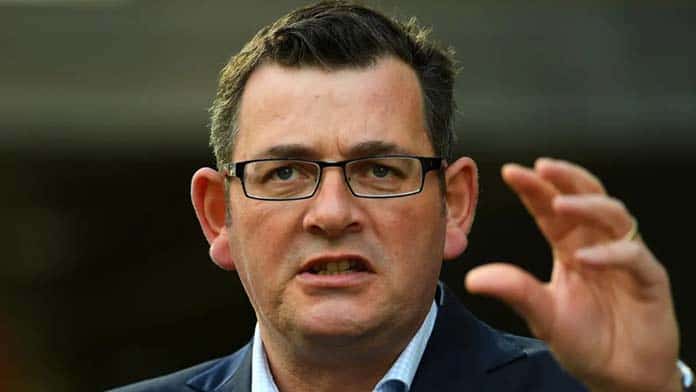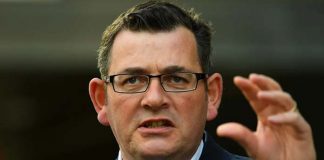Many will remember Daniel Andrews, who resigned in late September, as among the country’s most progressive premiers.
But in reality Andrews was a right-wing Labor premier who doubled the state’s prison population and made Victoria the most heavily policed state or territory bar the Northern Territory.
He presided over some of the world’s most authoritarian COVID lockdowns, and as a parting gift rewarded public sector workers with savage, below inflation pay, 4000 public sector job cuts and the closure of essential services like public health units.
Andrews savaged public housing tenants. The 2020 hard lockdowns on the Flemington flats violated tenants’ human rights, and in 2023, without consultation, Andrews announced the demolition of all 44 public housing towers in the state, evicting the tenants and turning the land over to private consortiums to rebuild and run as private and social housing.
State funded neoliberalism
For Victorians haunted by the memories of Liberal Premier Jeff Kennett’s dramatic cuts and privatisations in the 1990s, Andrews’ willingness to spend public money on “big builds” like the Metro tunnel, the Big Housing Build, the Suburban Rail Loop, and the State Electricity Commission appeared to be the return of public services.
Debt-fuelled state spending is at record levels, and Victoria is spending more than three times as much on infrastructure as it was during the 1980s and 1990s.
But far from reversing neoliberalism, Andrews has turbo charged it. The massive infrastructure spending has engorged unaccountable, untaxed companies, delivering sub-par services.
Public Private Partnerships exploded under Andrews. In 2018, private financiers, builders and service providers were funded by the state to run hospitals, a desalination plant, train rolling stock, underground tunnels, 255 schools, traffic infringement cameras, and new tollways.
Andrews drew heat from the integrity commission for paying the Health Sector Union to run training programs. But more appalling are the deals struck with corporate giants: in one example the state paid Metro Trains and Yarra Trams $16 million in performance bonuses during the pandemic despite having no passengers, on top of their usual operating payments, and on top of $100 million of “relief” to compensate for the loss of patronage.
Andrews paired privatisation with policing. In 2017, he said civil liberties were a luxury, and “the luxury that no political leader in Australia has is to say no to law enforcement, ‘No, we won’t give you what you say you need’”. He more than doubled the Victoria Police budget, making it the largest law enforcement agency in the country.
Andrews’ pandemic response was true to form, dressing up heavily policed lockdowns and attacks on civil liberties as “public health”, while paying private contractors to cover the gaps of a skeletal public health system.
Progressive reform fails
Andrews implemented some basic, inexpensive reforms like same-sex couples adoption rights, a ban on gay conversion therapy and voluntary euthanasia. In the context of reactionary federal Coalition government and conservative state opposition, people clung to these crumbs.
But Andrews’ attempts at substantial reforms were failures because policing and privatisation were the ultimate priorities. Despite calling a royal commission into family violence in his first term, it is now harder than ever for victims of family violence in Victoria to find long-term housing. Survivors in acute danger are waiting almost 18 months to get priority access to public housing.
And despite the fanfare over steps toward a Victorian treaty, the number of Indigenous children in out-of-home care in Victoria increased from 922 to 2595 under Andrews’ watch. The Indigenous imprisonment rate grew by 42.1 per cent between 2012 and 2022.
Some of the worst affected workers punished Andrews at the last election, scattering their vote across minor parties in desperation.
Unions could mobilise this anger into a fightback, but too often union leaders have cheered Andrews on, celebrating his punitive pandemic response, or paltry gestures at social reform.
The CFMEU did nothing to defend its members from job losses due to vaccine mandates. Despite a teacher shortage and an angry membership, the teachers’ union settled for a paltry 1.5 per cent pay rise, and the public sector union has all but accepted the announced job cuts.
Andrews’ formula of combining progressive gestures with a huge transfer of wealth to corporations and a militarised police force has become a model for other Labor leader across the country. But workers have no reason to accept it.
In September, a small protest of teacher unionists on the steps of Victorian parliament extracted state-funded teaching degrees and scholarships. Imagine what a real fight could win.
By Lucy Honan






